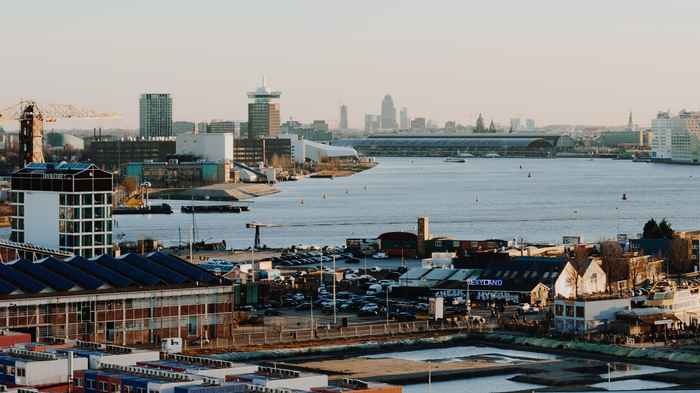Scavenger hunt, audio tour or musical rap: surprising projects at IIS Honours module: 'Urban Transformation, Gentrification & Inequality'
23 June 2022
A course with the aim of better understanding the urban, social transformation of the past (decades) in Amsterdam. Why and how did this happen? How can social changes in a neighbourhood also lead to more inequality in various forms?

Students were given a great deal of creative freedom to design their own final project. The results are surprising!
- A satirical blog that introduces gentrifiers from outside to Amsterdam and invites them to share their stories (the blog already has several). Will you add your story?
>>> Go to the blog - A scavenger hunt for newcomers and residents of the Pijp area. Discover more about the urban development of various buildings and places in the neighbourhood.
>>> Go to scavenger hunt
- An audio tour through the Nieuwmarkt neighbourhood, where you will learn about its history of renewal and protest. The walk lasts about 45 minutes and takes you along one of the most fascinating places of the city centre.
>>> Go to the audio tour - An informative flyer with a QR code that leads you to a website about gentrification, art and artists in the NDSM neighbourhood in the north of Amsterdam. Will you share your story?
>>> Go to the website - An annotated playlist of music that summarises what you'll come across when you cross Bos en Lommer: this is what entrepreneurs like to play in their shops.
>>> Go to the playlist - A cultural analysis of urban deprivation, gentrification and politics in German rap music (not online). 'Verloren', for instance, is about neighbourhood change as class struggle.
>>> Go to 'Verloren' on Youtube - Dramatised histories of transformation, gentrification and displacement in post-socialist cities. The writers are fictitious, but their experiences are based on research and all events and changes are historical (see research notes).
>>> Go to the website
More information about the IIS Honoursprogrammes can be found here